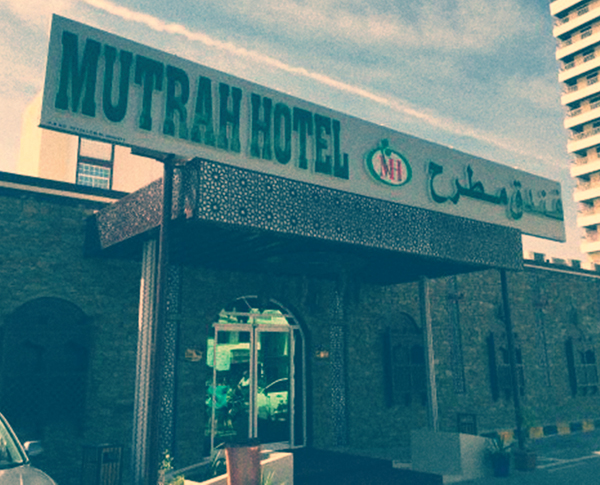
Mutrah Hotel, the first and the oldest hotel in Sultanate of Oman, was built in 1970. As you might imagine, its making was not without its challenges.
The barren, rugged land of Wushail in Mutrah was dotted with a few huts along with a car workshop called Sami & Qassim (which was later moved to Darsait at the request of the Municipality), and a scrap yard. In the midst of these humble buildings, a 19-room structure was brought all the way from Australia and dropped on an empty plot of land to serve as a temporary hotel while the permanent property was being built.
At the time, no one could imagine that the area would one day develop into one of the busiest areas in Muscat. Apart from the falaj waters that trickled down from the nearby hills, the area was almost uninhabitable as it was completely isolated. The name itself, Mutrah, means “faraway place” in Arabic, and as such, the opening of a hotel there certainly had its critics.
The Mutrah Hotel was officially opened in 1972 under the management of Al Falaj Hotel Group. Their namesake hotel in Ruwi opened later and was run by a Greek manager, Joe Salankis. It, like the group itself, was named after the area’s falaj waterways which flowed into the Bait Al Falaj Military Camp.
Initially, the Mutrah Hotel was licensed only for foreigners, and thus, there was no check-in for Omanis, but many came anyways, not for the rooms, but for the food. The hotel was earning a reputation for the delicious dishes that it served, especially the local lobster. Many visitors from the Rusayl Camp became regular guests, and when the Al Falaj Hotel became crowded with guests on the weekends (thanks to its popular swimming pool), delegates and business travellers began opting for the Mutrah Hotel instead. At the time, the property charged OMR 20 per night excluding meals.
The original 19-room Mutrah Hotel was transformed into a multi-storeyed building, undergoing many changes in design and ownership over the years. It now has 43 modern rooms, a lounge with snooker and darts, high-speed internet, tour bookings for visitors, a business centre, and a fitness centre. The restaurant is less of a draw now that Muscat boasts a vibrant food scene, but it carries on serving simple Arabian, Chinese, Indian, and Continental foods. The most significant change, however, isn’t inside the hotel at all, but in the surrounding area. What was once a dusty no-man’s land is now the bustling heart of the old city. The property is walking distance to the beautiful Mutrah Corniche, the traditional souq, Mutrah Fort, and the Sultan Qaboos Port, the transformation of which over the last 45 years have been stunning.
Is it the finest hotel in Oman? Certainly not, but it is one of the most historic, and a testament to the vision of those early businessmen who saw Mutrah for the gem it is.
—[email protected]